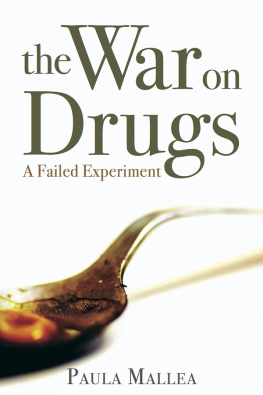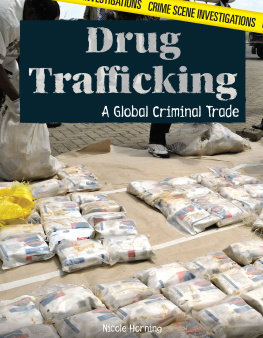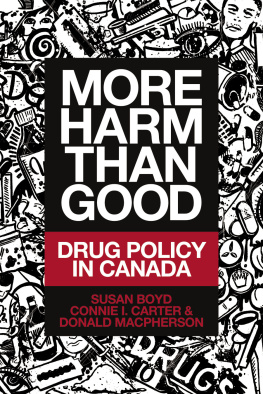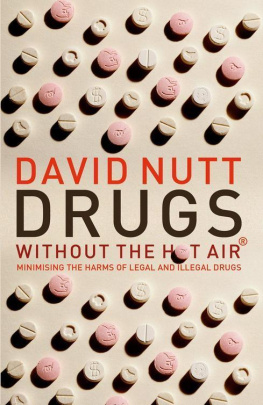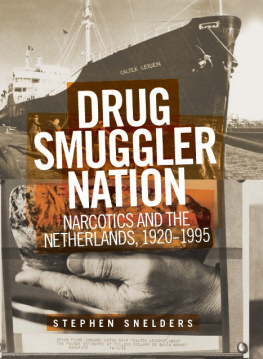Introduction
The War on Drugs was never about the drugs. If it were, there would be consistency and logic about which drugs are prohibited. Science and evidence would determine what gets banned. Instead, drugs have been selected for prohibition arbitrarily, and not according to which ones cause harm, or whether they cause harm at all. Decisions to ban drugs have been based upon political expediency, prejudice, and ignorance. Those affected by this unfair war are disproportionately the marginalized of our society. Prison sentences are the sanction of choice, even though most drug offences are victimless and non-violent.
The champions of this war have sent the users of certain substances to prison while they have simultaneously allowed organized crime bosses to reap the profits and thumb their noses at the justice system. They have allowed people to get sick and die from drug use because gangsters dont care about the quality of their product, or the age or health of their buyers.
It is by now indisputable that the War on Drugs has failed in all of its objectives. It has not reduced the drug trade, eliminated production, or decreased the number of users. Governments have thrown billions of dollars and thousands of police and military resources at the issue, and they have also opened and expanded many prisons to deal with it, but the illegal drug trade persists and grows. More drugs than ever are available today; they are cheaper, and they are being moved around the world by means of the Internet and paid for with virtual currencies. More violence than ever is attributed to gangster turf wars over this very lucrative industry.
The War on Drugs was an invention of American politicians. It has spawned a system of criminalization that has incarcerated millions of citizens who choose to use recreational drugs other than tobacco or alcohol. In the 1960s and 1970s, drug abuse was not high on the list of concerns for Americans. They were more preoccupied with the war in Vietnam, with civil rights, and with the assassinations of Bobby Kennedy and Martin Luther King Jr. In an effort to distract voters from these serious and difficult issues, politicians chose an easy target the demonization of drug users.
In the late 1960s, the Republican Party was desperately searching for an issue that would distinguish it from the Democrats and would appeal to the public, thus returning the Grand Old Party to the White House. Taking careful aim at the social programs and progressive philosophy of Lyndon Baines Johnsons Great Society, the GOP objected to the idea that fighting crime included fighting poverty, inadequate housing, and unemployment. As aspiring president Richard Nixon wrote in 1967, The country should stop looking for the root causes of crime and put its money instead into increasing the number of police. Americas approach to crime must be swift and sure retribution. That fight against crime swiftly focused on the young, rebellious Americans who used marijuana and other illegal drugs. The mantra of sex, drugs and rock n roll was despised by those in power, who quickly used drugs as an excuse to lock up troublemakers and position the GOP as tough on crime.
Nixon thus ranks high among politicians who have adopted the reliable tactic of replacing evidence-based policy with hide-bound ideology. Having avoided talking about the real issues of the day, he won the presidency and promptly declared drug abuse public enemy number one, calling it a national emergency. He placed a considerable amount of funding and other resources into waging total war on the slave traders of our time; hence, the War on Drugs. Ironically, his own National Commission on Marijuana and Drug Abuse in 1972 recommended legalizing marijuana, but his government steadfastly pursued the War on Drugs anyway.
After Nixon resigned in disgrace, presidents Gerald Ford and Jimmy Carter both made moves to climb down from the War on Drugs. The Democrat Carter even supported eliminating federal penalties for possession of up to one ounce of marijuana. By 19791980, though, he was fighting for re-election. At the time, Americans were being held hostage in Tehran, the domestic economy was ailing, and Ronald Reagan was waiting in the wings. Political expediency ruled the day, and Carters administration announced a new war on marijuana.
This about-face was not enough to win the election for the Democrats. Within two years, Republican president Reagan announced a re-energized War on Drugs, singling out marijuana for special attention. Were taking down the surrender flag that has flown over so many drug efforts, he said. Were running up a battle flag. The presidents wife, Nancy Reagan, urged schoolchildren to Just Say No to drugs, and called casual drug users accomplice[s] to murder. From the early 1980s onward, both Democratic and Republican governments ratcheted up the war, with an extraordinary amount of violence and countless citizens incarcerated.
Today, former president Jimmy Carter is among many who argue that this war cannot be won. In an op-ed for the New York Times , he appealed to the government to call off the global drug war. He urged the government to adopt the recommendations of a new Global Commission on Drug Policy to stop incarcerating drug users who do no harm to others, and to concentrate instead on fighting violent criminal organizations. He argued convincingly that penalties against possession of a drug should not be more damaging to an individual than the use of the drug itself.
Former president Bill Clinton has also admitted the failure of the War on Drugs. In a documentary film produced by Sam Branson, Breaking the Taboo , Clinton said, Well, obviously if the expected result was that we would eliminate serious drug use in America and eliminate the narcotrafficking networks, it hasnt worked. President Obama has allowed that marijuana is not as harmful as alcohol, and his Attorney General has taken the first steps to releasing thousands of prisoners incarcerated for drug offences. They also appear ready to allow Washington and Colorado to proceed with legal regimes for marijuana.
Admitting that the War on Drugs has failed, though, is only a first step. Recognizing the inappropriateness of lengthy incarceration for non-violent, victimless offences is not adequate to address the issue of drug prohibition. We need to consider new ways of thinking about illegal drugs: how they first became illegal and why; what health and other consequences they have for users and communities; what the impact of criminalization has been; what other solutions are being sought around the world. A War on Drugs premised upon prejudice, fear, and moralism needs to be replaced with policies that are based upon public health concerns, scientific evidence, and, not least, compassion.

